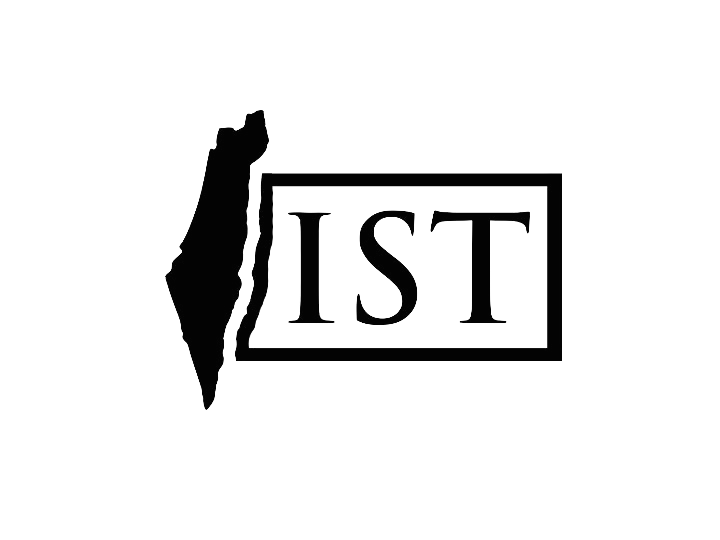A Parent's Perspective
As our 2016 Year 10’s (and my gorgeous progeny Eden-Lee) are about to travel to Israel on IST, I am taken back to when I travelled to Israel on Ulpan in 1980 with my cohort of Year 10 classmates from King David and Herzlia. In my uniform of Adidas sneakers (original) and a white sheepskin coat from the Arab markets in the Old City, I was also wearing the youthful excitement and anticipation of being in Israel for the first time. Eden-Lee’s IST uniform is (serendipitously) the same Adidas sneakers (well, actually, retro Superstar 80s and much more expensive) and a black North Face puffer jacket, but still worn with the youthful excitement and anticipation of visiting Israel.
Growing up in South Africa, we lived in a big double story red brick house with a grand circular driveway, 2 maids, a gardener, a driver, a brilliant blue Chinese carpet in our formal lounge, a sparkling (very cold) swimming pool, and summer holidays in the best hotels in the most popular beach towns along the balmy Indian Ocean. While our black servants cooked and cleaned for us, my mother would play bridge, sew and drink G&T’s in the late afternoon. I grew up swimming, playing with my four siblings, watching Pop Shop and devouring Enid Blyton books. For the Jewish holidays, we would decamp to my grandparents in Bethal and wear our grandest and finest outfits. We’d attend shule in the morning and then play carpet bowls with our cousins in the afternoon. So against this idyllic and carefree background, attending Ulpan, (my first time ever overseas and away from my parents for so long), and visiting my mother’s cousin for a Shabbat in Rehovot was an experience as far removed from my life, as Israel is from South Africa.
Tzaffa, my mother’s cousin, lived in Rehovot, a town about 20 km south of Tel Aviv. When I arrived I was ushered into their small home and sat down at a melamine table covered in brightly patterned oilcloth in their kitchen. They couldn’t speak any English, I couldn’t speak any Hebrew. They were trying so hard to be hospitable and friendly, I was trying so hard to not be homesick. I remember so vividly sitting at the table, watching the dust suspended on the sunbeams streaming in through the window. It was a beautiful winter’s day, with the radiant sun painting the sky blue and it was taking all my willpower not to cry. Later I was taken on a walk through their citrus grove, which was really not much larger than the size of my garden back at home but cultivated with jeweled oranges and dappled in sunlight.
What I wish I had known then, and can only appreciate now, was the pride that they had in their verdant orchard. Rehovot became historically important when they realised in the 1920’s that the loamy red soil was perfect for cultivating large, round and juicy Jaffa oranges. These oranges became the pride of the country and one of the more important export goods of the small province under British mandate called Palestine. The Russian and Polish Jews who had settled in Rehovot (including my mother’s uncle and aunt) were hoping to find peace and prosperity in the land of Israel. The long route the oranges made from the tree, to the picker's basket, to the trolley, to the sorting and packing house, then to the port of Jaffa, where crates were transported by wooden row-boats to the ships which would take the oranges to the best European markets, (and even, apparently, the table of the Queen of England), seemed to carry the promise of the Zionist imagination becoming an imagined Zionist nation. As Ari Shavit writes so eloquently in his sublime chapter Orange Groves in My Promised Land, “There is hope in the land. And the colony of Rehovot is a living testament that the Jews were right to end their two millennia of wandering in the Plains of Judea. They were right to come here and build a home and plant a tree and put down roots. Creating something from nothing. Creating this green ocean of orange groves that whispers peace and plenty and home”.
But, I didn’t know any of this then and youth is an excuse that excuses. Perhaps one day I will revisit Rehovot and walk in the (very few) remaining citrus groves and realise that the roots laid then, survive in the roots we lay with our children by sending them to Jewish Day Schools and on Israel Study Programs. I am so hopeful that, Eden-Lee’s free weekend with my cousins in Modi’im, won’t be marred by homesickness as mine was, but rather evince an admiration and appreciation of the history and heroism of the early (and more recent) Israelis.
My fervent wish on their departure is that all our intrepid IST adventurers, and especially Eden-Lee, appreciate the enormity of the contribution that the fragile yet fierce Holocaust survivors, the pale and poor Eastern European refugees, the brave and bold Chalutzim, the Sefardic Jews of the Arab world, the heroic warriors of the Palmach and especially the optimistic orange growers of Rehovot (like my mother’s family), made in giving us back the land of Israel, to once more become the people of Israel. Eden-Lee’s education and experiences at Moriah has led me to confidently believe that it will be so.
Tracey



